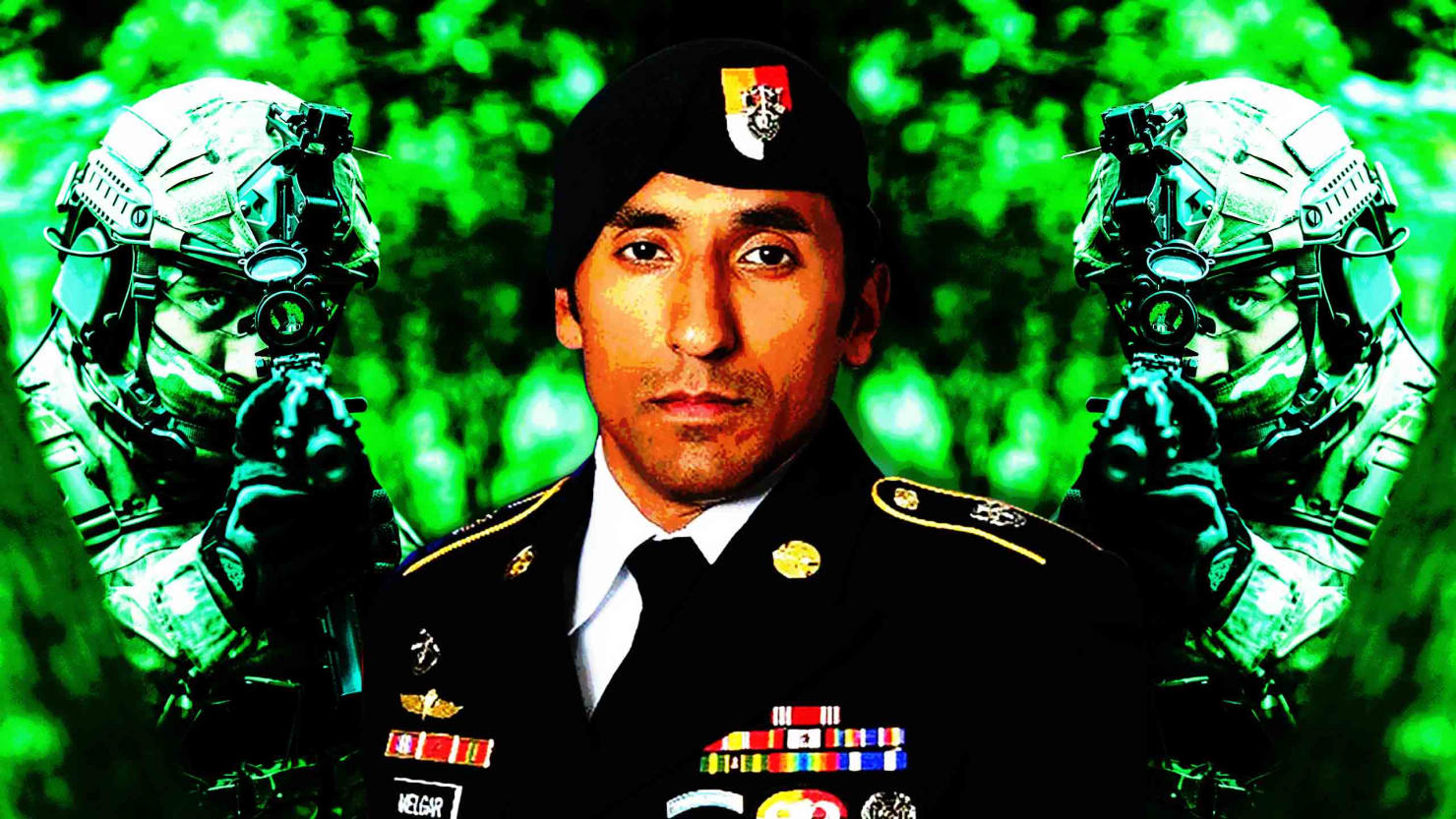Logan Melgar hadn’t had a drink on June 4.
The Green Beret sergeant’s dry day became a key to unraveling the narrative spun by the elite Navy commandos whom military investigators now suspect killed him, officials familiar with the case said.
Melgar, a staff sergeant in the Army’s 3rd Special Forces Group, was specifically selected for an intelligence operation in the West African nation of Mali. He was well respected by the American Embassy staff and the partner forces there, a former U.S. Africa Command official said. But shortly before he died, Melgar told his wife that he had a bad feeling about two of his partners in that effort, both of whom were members of SEAL Team Six.
Not wanting to say much more, Melgar informed his wife, Michelle, that he’d tell her the full story when he got back home, according to an official speaking on condition of anonymity because the investigation is still ongoing.
Now those two Navy SEALs are under investigation for killing Melgar—an investigation, first reported by The New York Times, sending shockwaves throughout the special-operations community.
Military experts were hard-pressed to think of another case where elite U.S. troops turned on one another.
This account is based on five members of the special-operations community who were not cleared to speak publicly. Representatives of both U.S. Africa Command (AFRICOM) and U.S. Special Operations Command (SOCOM) declined comment for this story, as the Navy Criminal Investigative Service (NCIS) has an active investigation into Melgar’s death. NCIS would not comment beyond confirming the investigation is underway.
Dirty Money, Damning Excuse
There is a minimal U.S. troop presence in Mali at most—nothing compared to the 800 troops in neighboring Niger, another West African nation that hosts a sizable special operations cadre. But special operations forces aid U.S. diplomats, Malian soldiers and their French partners in gathering intelligence on a confluence of capable local militants trending Islamist. As the elite troops do in so many countries, they operate in the shadows, with comparatively little oversight—and what their actions actually look like on the ground can be much dirtier than the heroic image the Pentagon prefers to portray.
For example, part of the intelligence gathering operation in Mali involved a fund used to pay informants.
Melgar, two special operations sources say, discovered the SEALs were pocketing some of the money from the informant fund. The SEALS offered to cut him in, but Melgar declined, these sources said.
It is unknown what specifically started the June 4 altercation at 5 a.m. but it escalated. Melgar lost consciousness—and, worse, stopped breathing. The SEALs attempted to open an airway in Melgar’s throat, officials said. It is unknown whether Melgar died immediately. The SEALs and another Green Beret, according to former AFRICOM officials, drove to a nearby French clinic seeking help. Melgar was dead when he arrived at the clinic, the official said. Asphyxiation was the cause of death.
With
Melgar dead, an apparent panic set in. The SEALs told superiors that
Melgar was drunk during so-called combatives—that is, hand-to-hand
fighting exercises. The Intercept reported that one of the SEALs, Petty
Officer Anthony E. DeDolph, was a mixed-martial arts pro.
A source told The Daily Beast the SEALs filed at least one operational
report about the incident and possibly two. At least one of the reports
included an account that Melgar was drunk.
The Green Beret sergeant’s dry day became a key to unraveling the narrative spun by the elite Navy commandos whom military investigators now suspect killed him, officials familiar with the case said.
Melgar, a staff sergeant in the Army’s 3rd Special Forces Group, was specifically selected for an intelligence operation in the West African nation of Mali. He was well respected by the American Embassy staff and the partner forces there, a former U.S. Africa Command official said. But shortly before he died, Melgar told his wife that he had a bad feeling about two of his partners in that effort, both of whom were members of SEAL Team Six.
Not wanting to say much more, Melgar informed his wife, Michelle, that he’d tell her the full story when he got back home, according to an official speaking on condition of anonymity because the investigation is still ongoing.
Now those two Navy SEALs are under investigation for killing Melgar—an investigation, first reported by The New York Times, sending shockwaves throughout the special-operations community.
Military experts were hard-pressed to think of another case where elite U.S. troops turned on one another.
This account is based on five members of the special-operations community who were not cleared to speak publicly. Representatives of both U.S. Africa Command (AFRICOM) and U.S. Special Operations Command (SOCOM) declined comment for this story, as the Navy Criminal Investigative Service (NCIS) has an active investigation into Melgar’s death. NCIS would not comment beyond confirming the investigation is underway.
Dirty Money, Damning Excuse
There is a minimal U.S. troop presence in Mali at most—nothing compared to the 800 troops in neighboring Niger, another West African nation that hosts a sizable special operations cadre. But special operations forces aid U.S. diplomats, Malian soldiers and their French partners in gathering intelligence on a confluence of capable local militants trending Islamist. As the elite troops do in so many countries, they operate in the shadows, with comparatively little oversight—and what their actions actually look like on the ground can be much dirtier than the heroic image the Pentagon prefers to portray.
For example, part of the intelligence gathering operation in Mali involved a fund used to pay informants.
Melgar, two special operations sources say, discovered the SEALs were pocketing some of the money from the informant fund. The SEALS offered to cut him in, but Melgar declined, these sources said.
It is unknown what specifically started the June 4 altercation at 5 a.m. but it escalated. Melgar lost consciousness—and, worse, stopped breathing. The SEALs attempted to open an airway in Melgar’s throat, officials said. It is unknown whether Melgar died immediately. The SEALs and another Green Beret, according to former AFRICOM officials, drove to a nearby French clinic seeking help. Melgar was dead when he arrived at the clinic, the official said. Asphyxiation was the cause of death.





